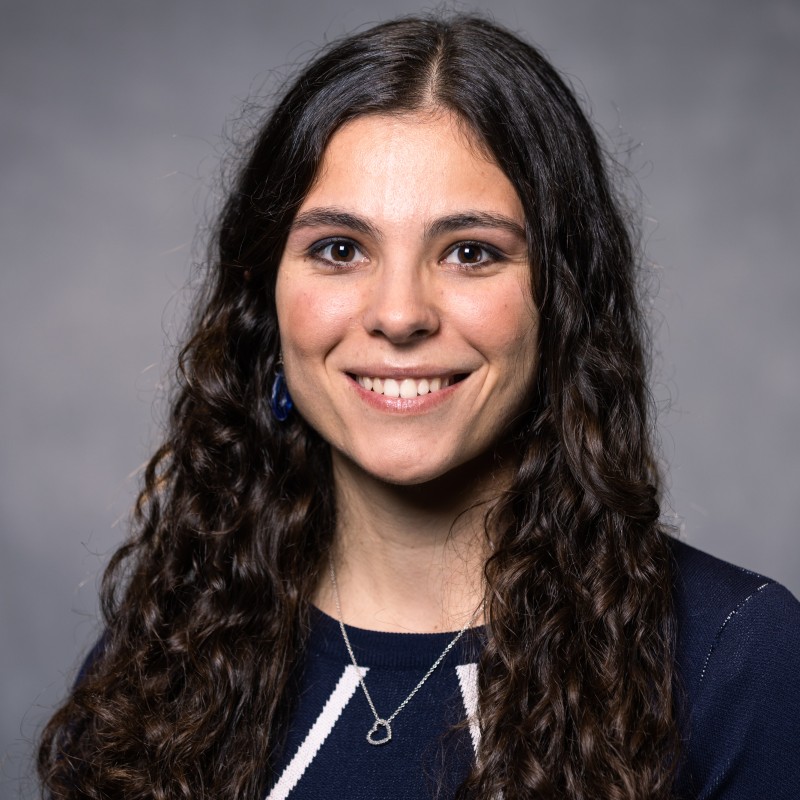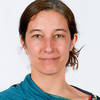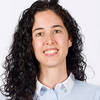Sidebar
This is an old revision of the document!
Table of Contents
AC people
Carlos Pérez García-Pando

Head of the Atmospheric Composition Group
AXA Professor on Sand and Dust Storms
Ramón y Cajal Fellow
Interests: atmospheric chemistry, aerosols, mineral dust, effects upon climate
Bio: I am both an Industrial Engineer from the Universitat Politècnica de Catalunya (Spain, 2001) and Ingénieur des Arts et Manufactures from the École Centrale Paris (France, 2001). I received my Ph.D. degree in Environmental Engineering from the Universitat Politècnica de Catalunya in 2006. My research focuses on understanding the physical and chemical processes controlling atmospheric aerosols and trace gases, and on evaluating their effects upon climate, ocean biogeochemistry, air quality and health. My core area of expertise is mineral dust. I am also a model developer with a large experience in supercomputers and operational forecasting.
After obtaining my PhD in 2006, I created the mineral dust research line at the Barcelona Supercomputing Center (2006-2009) where 1) I played a central role on the creation and implementation of the World Meteorological Organization Regional Centers on Sand and Dust Storm Prediction in Spain, and 2) I conceived and initiated the developments of MONARCH, the unified prediction model for weather, atmospheric aerosols and chemistry currently developed by the Atmospheric Composition Group. In 2009, I moved to the US where I worked as Visiting Scientist at the NOAA/National Centers for Environmental Prediction (2009), Earth Institute Fellow at the International Research Institute for Climate and Society, Columbia University (2009-2011) and the NASA Goddard Institute for Space Studies and Columbia University (NASA GISS; 2009-2011), and Associate Research Scientist at NASA GISS (2012-2016). In October 2015, I was awarded with an Chair of 15 years duration funded by the AXA Research Fund to develop my cross-disciplinary dust research program at BSC. In 2016 I was also awarded with Spanish the Ramon y Cajal fellowship, being ranked #1 by the Earth Sciences panel. In 2016, I re-joined BSC as Head of the Atmospheric Composition Group and AXA professor on Sand and Dust Storms, where I coordinate the work of 17 people including senior researchers, postdocs, PhD students and technical support staff. In 2017, I was awarded with an ERC Consolidator Grant entitled FRAGMENT, which has started in October 2018. I was also awarded with the Agustín de Betancourt y Molina prize for young researchers by the Spanish Royal Academy of Engineering.
Oriol Jorba

Co-Group leader of the Atmospheric Composition Group
Senior Researcher
Interests: atmospheric chemistry, air pollution, meteorology, atmospheric modelling and feedback processes
Bio: Dr. Oriol Jorba, Co-Group leader of the Atmospheric Composition group of the Barcelona Supercomputing Center (BSC) holds a PhD degree on Environmental Engineering. His research expertise includes high resolution mesoscale meteorology and air quality, development of online meteorology-chemistry models, boundary layer, atmospheric chemistry studies and environmental impact assessment. He has lead the research project on the development of the multiscale chemical weather forecasting system NMMB-MONARCH (CGL2008-02818, CGL2013-46736) at BSC which is the official model used by the Barcelona Dust Forecast Center (BDFC), the World Meteorological Organization (WMO) Regional Meteorological Center specializing in Atmospheric Sand and Dust. He has participated in projects funded by the European Commission on air quality, specifically in aerosols, (APPRAISAL, EARLINET, FIELD-AC, ACTRIS1, ACTRIS2, FORCES), in the application of atmospheric modeling in HPC (IS-ENES, IS-ENES2, RETHINK big), and the provision of services on the framework of the Copernicus Atmosphere Monitoring Service (CAMS81, CAMS84, CAMS50, CAMS61). He has been a Spanish representative member of the management committee of COST Actions ES1002 and ES1004, is part of the International Technical Meeting on Air Pollution Modelling and its Application (ITM) scientific committee since 2012 and the steering committee of the international project Monitoring, Analysis and Prediction of Air Quality (MAP-AQ) sponsored by WMO and IGAC since 2020. He is an active member of the International Cooperative for Aerosol Prediction (ICAP).
Adolfo Gonzalez Romero
Alessio Melli
Interests: atmospheric chemistry, atmospheric modelling
Bio: BSc and MSc in Chemistry from Alma Mater Studiorum University of Bologna (Italy), PhD in Astrochemistry from Scuola Normale Superiore in Pisa (Italy).
Cristina González Flórez
Interests: meteorology, air pollution, air quality, mineral dust, climate, atmospheric processes
Bio: Cristina received her BSc degree in Physics (2017) and MSc degree in Meteorology and Geophysics (2018) from the Complutense University of Madrid, Spain. In November 2018 she joined the Atmospheric Composition group of the Earth Sciences Department at the Barcelona Supercomputing Center (BSC) and in October 2023 she completed her Ph.D. in Environmental Engineering Program at the Universitat Politècnica de Catalunya. The overall aim of her thesis has been to improve our fundamental and quantitative understanding of the emitted dust particle size distribution and its variability, based on the measurements from an intensive dust field campaign conducted in Morocco in 2019. Currently, she is a postdoctoral researcher at BSC.
Dene Bowdalo
Interests: atmospheric chemistry, air pollution, atmospheric modelling, statistical analysis, observational quality control.
Bio: Dene Bowdalo obtained his bachelor degree in Environmental Science (1st class honours) from the University of Leeds in 2012. He then proceeded to immediately start his PhD in Atmospheric Chemistry at the University of York, which he finished in 2016 with his thesis titled: “Spectral analysis of atmospheric composition: Application to surface ozone”. He joined the atmospheric composition group at the Barcelona Supercomputing Center (BSC) as a postdoctoral researcher in April 2018. He is currently interested in the modelling of European aerosols and the compilation of substantive quality controls for the handling of observations.
Elisa Bergas Massó
PhD Student
Interests: mineral dust, climate, atmospheric & climate modelling, atmospheric chemistry
Bio: Elisa Bergas-Massó is a 2nd year Ph.D. student in the Environmental Engineering Program of the Universitat Politècnica de Catalunya (UPC) and currently conducts her research in the Atmospheric Composition group of the Earth Sciences Department of the BSC. She obtained her BSc degree in Physics with a mention in fundamental physics from Universitat de Barcelona (UB) in 2018. She completed her MSc degree in Meteorology at the same university in 2019. While doing the MSc degree, she did an internship in the Atmospheric Composition group of the Earth Sciences department of the Barcelona Supercomputing Center (BSC), working on mineral dust emissions. Since September 2019, in the scope of a Ph.D., she has focused her work on the iron cycle and its impact on the climate system. By means of numerical Earth System Models and thanks to High-Performance Computing environments, she explores the atmospheric sources of iron, the chemical processes involved in its dissolution and their relevance upon ocean biogeochemistry and carbon uptake in past, present and future climates.
Franco Rodrigo Lopez Coronado
Hector Navarro Barboza
Interests: air quality modeling, organic aerosols, atmospheric chemistry
Bio: I received a BSc degree in physics by Universidad Nacional Mayor de San Marcos, in Peru (2011-2016). Later, I did a master's degree in physics with a mention in geophysics at the same university (2016-2018). During my master's degree, I worked as a research assistant and laboratory professor at the Universidad del Pacifico in Peru, where my research focus was on the study of air quality in Lima and the evaluation of PM10 from biomass burning on the Peruvian central Andes using the WRF-Chem model. In December 2019 I joined at Barcelona Supercomputing Center in the atmospheric composition group, where I do the Ph.D. under the supervision of Dr. Oriol Jorba and the co-supervision of Dr. Marco Pandolfi (CSIC). Currently, my research work is focused on the study of the optical properties of organic aerosol using the MONARCH model.
Herve Petetin
Postdoctoral Researcher
STARS Fellow
Interests: air quality, aerosols, ozone, emissions, biomass burning, pollution long-range transport, pollution vertical distribution, trend analysis, boundary layer dynamics, machine learning.
Bio: Dr. Herve Petetin holds an engineering diploma from the Ecole Centrale de Lille (ECL, France, 2008), a M.Sc. in Mechanics and fluid dynamics from the University of Science and Technology Lille 1 (USTL, France, 2009), a M.Sc. in Atmospheric physics and chemistry from the University of Paris Est Creteil (UPEC, France, 2010) and a Ph.D. in Atmospheric physics and chemistry from the University of Paris Diderot (UPD, France, 2014). His doctoral thesis, entitled “Fine aerosol in a European megacity – Simulation of the sources”, was conducted at the Laboratoire Inter-universitaire des Systemes Atmospheriques (LISA, France) and AIRPARIF, the local agency in charge of monitoring and forecasting the air quality in the Paris region. Utilizing both detailed in-situ measurements of aerosol chemical speciation from several research campaigns (PARTICULES, MEGAPOLI, FRANCIPOL) and the CHIMERE regional chemistry-transport model, he investigated several features of fine aerosol (PM2.5) pollution the Paris region, including source apportionment, evaluation of emission inventories and formation regime of secondary inorganic aerosols. Over the period 2014-2018, he worked as a postdoctoral researcher at Laboratoire d’Aerologie (LA, France) in the French branch of the IAGOS European Research Infrastructure which operates worldwide meaurements of ozone and carbon monoxide on-board in-service aircraft since 1994. Based on this unique dataset of about 100,000 vertical profiles, he investigated the climotogical vertical distribution and trends of these two important gaseous pollutants, through both the entire troposphere and the planetary boundary layer. Using the FLEXPART particle dispersion model coupled to global carbon monoxide emission inventories, he also get expertise on the long-range transport of anthropogenic and biomass burning plumes. As part of the scientific team of IAGOS, he was involved in the TOAR (Tropospheric Ozone Assessment Report, 2015-2018) international panel of experts on tropospheric ozone (IGAC initiative) that recently assessed the state-of-the-art knowledge on this pollutant. Over the last years, he developed a new expertise on machine learning through several well-recognised Massive Open Online Courses (MOOCS), including “Machine learning” (Coursera, Stanford) and “Statistical learning” (Lagunita, Stanford). In 2018, he obtained a postdoctoral funding at the BSC from the STARS program (Marie-Sklodowska-Curie Action COFUND program) for working on the improvement of the air quality forecasts with machine learning techniques.
Jerónimo Escribano

Postdoctoral Researcher
STARS Fellow
Interests: Aerosol data assimilation, numerical modelling.
Bio: Jerónimo Escribano holds a bachelor degree in Engineering, a Mathematical Engineering diploma and a MSc. in Meteorology and Climatology from the University of Chile. He obtained his PhD. in atmospheric sciences from the Université Pierre et Marie Curie (now Sorbonne Université) at the Laboratoire de Météorologie Dynamique (LMD/IPSL, Paris, France) in 2017. His research interests include atmospheric composition numerical modelling and aerosol data assimilation. He joined the data assimilation team of the atmospheric composition group at the Barcelona Supercomputing Center (BSC) in June 2018.
Marc Guevara
Interests: emission modelling, geographic information system, air quality modelling
Bio: Dr. Marc Guevara holds a PhD in Environmental Engineering (Polytechnic University of Catalonia, Spain, December 2014). He is a postdoctoral researcher with 9 years’ experience in the areas of emission and air quality modelling. In 2010, he was enrolled as support engineer at the Earth Sciences Department of the Barcelona Supercomputing Center (BSC), and in 2014 he moved to the emission working group coordinator position at BSC. His principal research area is atmospheric emission modelling, with a focus on development and implementation of bottom-up high-resolution emission estimation methodologies, development of emission processing systems for creating atmospheric chemistry transport model-ready emissions, build-up of spatial and temporal proxies and analysis, benchmarking and inter-comparison of emission inventories. His expertise also includes geoprocessing and spatial analysis using GIS tools, the use of air quality modelling tools for evaluating and improving emission inventories and the development and assessment of emission reduction scenarios. He coordinates the development of the in-house HERMES emission model, which is the emission core of the Spanish CALIOPE operational air quality system. He is co-chair of the Emissions Working Group of the Forum for Air quality Modelling (FAIRMODE) community and member of the Emissions and Deposition Working Group of the MUlti-Scale Infrastructure for Chemistry and Aerosols (MUSICA) community. He has coordinated the development and implementation of an air quality forecast system for the Mexico City's Environment Secretary. He currently participates in the H2020 AQ-WATCH project, coordinates the Service Evolution work package of the Copernicus CAMS_81 – Global and Regional emissions service and participates in the Copernicus CAMS_50 – Regional production. He has participated in the Spanish air quality-related CALIOPE-And project and the PAISA national project (CGL2016-75725-R), among others. He has co-authored 19 papers in international scientific journals (Scopus 12h-index and 311 Citations), 4 book-chapter and several communications to International conferences. He is currently co-directing 1 PhD thesis.
María Gonçalves Ageitos
Interests: climate modelling, atmospheric chemistry, aerosols.
Bio: María Gonçalves Ageitos is Chemical Engineer by the University of Santiago de Compostela (2004) and holds a PhD in Environmental Engineering by the Technical University of Catalonia -UPC- (2009). She currently works as a tenure-track 2 lecturer at the Engineering Projects and Construction Department (DEPC) of the UPC, and as associate researcher at the Earth Sciences Department of the BSC-CNS. She teaches different subjects at graduate and undergraduate level on the knowledge areas of Environmental Sciences and Technology and Project Management of the engineering studies developed in the Terrassa School of Industrial, Aerospace and Audiovisual Engineering (ESEIAAT), supervises final degree and final master thesis, and actively collaborates in the PhD program of Environmental Engineering of the UPC. Her research interests lie on the atmospheric modelling field. By means of numerical models and thanks to High Performance Computing environments, she explores atmospheric processes and interactions in the short-term and climate scales, with a focus on atmospheric chemistry and aerosols. As such, she has collaborated in a range of national and international projects and initiatives focusing on atmospheric models development and evaluation (e.g. CALIOPE, NMMB-MONARCH) or regional climate modelling (e.g. ESCAT, MedCORDEX) and more recently Earth System Modelling (e.g. EC-Earth, AerChemMIP).
Marios Chatziparaschos
Interests: aerosol-cloud interactions, ice nucleating particles, mineral dust, marine and terrestrial bioaerosols, aerosol and cloud observations, model evaluation
Bio: Dr. Marios Chatziparaschos completed his BSc degree in Physics at Aristotle University of Thessaloniki, Physics Department, Greece (2009-2013). He then pursued an MSc in Environmental Sciences and Engineering at the University of Crete, Chemistry Department (2016-2018), followed by a PhD in Environmental Sciences and Engineering at the same university. His doctoral research was conducted at the Environmental and Chemical Processes Laboratory (ECPL), Chemistry Department, Greece, spanning from 2018 to 2023.
Marios’ research interests concern the study of chemistry and physics of the atmosphere, with focus on the impacts of aerosol chemical composition on cloud microphysical processes and climate, using modeling techniques. Through his research activities he is trying to: understand the impact of mineralogy on airborne dust particles acting as ice nuclei particles, assess the impact of natural emissions from terrestrial and marine primary organic aerosols on the formation of ice crystals over remote oceans, evaluate and optimize results comparing with field and laboratory measurements.
Projects: PANACEA (https://panacea-ri.gr/index.php/team/marioschatziparasxos/?lang=en) FORCes: (https://forces-project.eu/participants/)
Montserrat Costa Surós
 Postdoctoral Researcher
STARS Fellow
Postdoctoral Researcher
STARS Fellow
Interests: aerosol-cloud interactions, radiative effects upon climate, aerosol and cloud observations, model evaluation.
Bio: Dr. Montserrat Costa Surós graduated with an Extraordinary Award from a BSc Degree in Environmental Sciences (2005), and with a Master’s Degree in Environment (2009) from the University of Girona (UdG, Spain). During her doctoral studies (FPI fellow, 2008-2012), she did a research stay at the Pacific Northwest National Laboratory (USA, 2011) where she worked within the ARM program team, and another research stay at the company Vaisala Oyj. (Finland, 2012). After obtaining her PhD in Experimental Sciences and Sustainability (UdG, Spain, 2014), she had her first postdoctoral position at the Institute of Geophysics of the University of Warsaw (Poland, 2014-2016), where she was mainly involved in observations of aerosols, clouds, and water vapor by the means of a multi-wavelength Raman depolarization Lidar. She was also involved in the “MULTIPLY Project for the development of a European HSRL airborne facility”, funded by the European Space Agency (ESA). From 2006 until the end of 2019, she held a postdoctoral position at the Remote Sensing Group of the Institute for Geophysics and Meteorology of the University of Cologne (Germany). She was involved in the High Definition of Clouds and Precipitation for Climate Prediction (HD(CP)2) German Project analyzing the effects of aerosols on clouds and precipitation through model simulations and observations, investigating the sensitivity of aerosol perturbations to observables, and evaluating the ICON-LES model performance by comparing its output to several kinds of observations. In 2020, she joined the Barcelona Supercomputing Center (BSC, Spain) as a Research Scientist in Climate Data Quality Control at the Earth Sciences Department performing a technical assessment of the climate datasets served by the Copernicus Climate Change Service (C3S). In 2021, she obtained a STARS fellowship (Marie-Sklodowska-Curie Action COFUND, within the H2020 Programme) for investigating the mineralogy in dust-cloud interactions and associated radiative forcing in the Atmospheric Composition group at the BSC. At the same time, she is also a Teaching Fellow at the UdG.
Roger Garatachea Sole
Ruben Sousse Villa
Interests: MONARCH model, dust heterogeneous chemistry, FRAGMENT, global aerosol mode, organic aerosols, nitrates, atmospheric chemistry
Bio: I obtained my BSc degree in applied physics at Barcelona University (2011-2015), specialization in geophysics. At the same university, I did a MSc in Renewable Energies and Sustainability (2015-2016), performing an internship at Institut Cartogràfic i Geològic de Catalunya in the Geophysics Department. After a postgraduate course in Big Data and Data Science from Universitat of Barcelona (2018), in 2020 I completed the MSc degree in Environmental Physics from Bremen University (Germany), specializing in atmospheric modeling and developing the FLEXPART Lagrangian Particle Dispersion model to couple it with the KPP kinetic chemical preprocessor and TM5-MP fields.
Currently, I am studying for my PhD in the Aerosol-radiation-cloud interactions group at the BSC, developing the dust heterogeneous chemistry of the MONARCH model as part of the FRAGMENT project. I am also working in developing the Global Aerosol mode of MONARCH and on setting updated Global Aerosol baseline simulations.
Previously in the group
- Antonis Gkikas - Post-Doc MSCA Fellow
- Víctor Valverde - PhD student
- Lluís Vendrell - PhD student La Caixa Fellow
- Michele Spada - PhD student
- Alba Badia - PhD student
- Simone Marras - PhD student
- Angel Rincón - PhD student
Jan Mateu Armengol
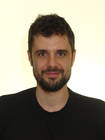 Postdoctoral Researcher
STARS Fellow
Postdoctoral Researcher
STARS Fellow
Interests: urban air quality modelling, uncertainty quantification (UQ), data assimilation (DA).
Bio: Jan’s research focuses on urban air quality modelling with emphasis in uncertainty quantification and data assimilation. He has expertise in the numerical computation of turbulent flows and thermal radiation transport. Jan holds a Bachelor degree in Industrial Engineering from the Universitat Politècnica de Catalunya (Spain, 2013). He obtained a MSc. degree in numerical heat transfer and fluid flow by the Universidade Estadual de Campinas (Brazil, 2015). After receiving his joint-PhD degree in mechanical engineering from both the Universidade Estadual de Campinas and the École Centrale Paris (France, 2019), he collaborated with L’École Polytechnique (France, 2020) as a postdoctoral researcher working on Bayesian inference and uncertainty quantification on reduced chemical schemes. Jan joined the Atmospheric composition group, as well as the Earth System Services group to apply uncertainty quantification and data assimilation methodologies to urban air quality simulations.
Simon Thomas
Intern
Bio : Simon Thomas is a physics and computer science student at Bowdoin College in Brunswick, Maine, United States. He previously worked for one year at the National Center for Atmospheric Research in Boulder, Colorado. His work focused on the development of MusicBox-Interactive, a Dockerized, Locally-hosted web interface for MuiscBox, a runtime configurable atmospheric chemistry box model. He developed a number of tools for the creation, manipulation, and analysis of chemical mechanisms, as well as built-in plotting tools.
Santiago Enciso Morales
Interests: air pollution, emission modelling, air quality modelling, climate change
Bio: Santiago Enciso obtained his BSc degree in Environmental Engineer from Santo Tomás University in Bogotá Colombia and He completed his Master's Degree in Science Technology and Sustainability in the Universitat Politècnica de Catalunya. Previously, Santiago made an internship at the Institute in Science and Technology of Sustainability in Barcelona, and during 2016-2017, he worked in the District Environment Secretary of Bogotá Colombia, in the Air Quality Subdirection. Santiago is a member of the Atmospheric Composition Group in the Barcelona Supercomputing Center (BSC), and he will support HERMESv3_BU and HERMESv3_GR models.
Sara Basart
Postdoctoral Researcher
Personal page
Interests: dust modelling and feedback processes, air quality, aerosols, meteorology, end-user products.
Bio: Dr Sara Basart (female) obtained her PhD degree in Engineering Environmental (Degree of European Doctor) at Technical University of Catalonia (UPC) in January 2012 while doing her research at different research centres (Centro de Investigación Atmosférica de Izaña, Spain, and Laboratoire des Sciences du Climat et de l'Environnement, France). Her main research background covers mineral dust modelling, air quality and aerosols. At present, Dr Basart is a researcher in the Barcelona Supercomputing Center (BSC). She is the scientist in charge of the WMO Sand and Dust Storm Warning Advisory and Assessment System (SDS-WAS) Regional Center for Northern Africa, Middle East and Europe, and the Barcelona Dust Forecast Center (BDFC), hosted in BSC. She also participates in international projects like the International Cooperative on Aerosol Prediction (ICAP) initiative, H2020 (AQ-Watch, SOLWARIS, ACTRIS and ACTRIS-2) and Copernicus (CAMS-84, CAMS-61, CAMS-95). She is Leader Project Investigator of the EU ERA4CS project DustClim. Recently, she was elected as a Chair of the COST Action InDust. She has authored or co-authored more than 30 peer-reviewed publications in international journals and book chapters. Furthermore, she has participated in capacity building and transfer of knowledge activities associated with private contracts, European Commission and United Nations programmes.
Enza Di Tomaso
Interests: mineral dust data assimilation, aerosol obsevations
Bio: Enza Di Tomaso has a degree in Physics from the University of Bologna in Italy, and a PhD in Engineering Mathematics from the University of Bristol in UK. She has worked as lecturer of Artificial Intelligence and Discrete Mathematics at the University of Bristol before moving to the field of atmospheric science, initially working for the Italian Research Council (CNR IMAA) on the retrieval of precipitation from satellite observations, and subsequently working at ECMWF, the European Centre for Medium-Range Weather Forecasts in Reading, UK, on exploiting satellite observations for numerical weather prediction under a fellowship programme of the European Organisation for the Exploitation of Meteorological Satellites (EUMETSAT). At BSC, she has expanded her interest to atmospheric chemistry, and in particular to aerosol data assimilation, implementing a scheme to ingest satellite observations into the BSC chemical transport model. This has meant the start of a new strategic research line within the Atmospheric Composition group of Earth Sciences department.
María Teresa Pay
Interests: atmospheric chemistry, air pollution, air quality modelling (forecast, evaluation and improvement) and environmental impact assessment
Bio: Dr María Teresa Pay is Chemical Engineer at the University of Murcia (2006) and holds a PhD in Environmental Engineering at Polytechnic University of Catalonia (2011). She is a postdoctoral researcher with 15 years of experience in the areas of air quality modeling. She worked as Postdoctoral Marie Curie Researcher at L’École Polytechnique (France, 2013-2015). Since 2006, she is a researcher at the Earth Sciences Department of the Barcelona Supercomputing Center (BSC) working in competitive projects and supporting the Spanish CALIOPE operational air quality system. Her research focuses on understanding the origin of air pollution by estimating the contribution from different sources to the air concentrations, and evaluating its effects upon climate and health. Her work has resulted in 27 peer-reviewed papers (92% in Q1; h-index: 15; number of citations: 662, Scopus), 8 chapters in books/proceedings/reports, more than 60 contributions to conferences/workshops (90% oral), and organization of 1 international workshops, 3 international training courses, and two invited presentations at air quality expert forums. She has participated in 20 international and national projects (8 as Principal Investigator). She has advised 1 PhD student. Since 2015, she has been an associated Lecturer at the University of Barcelona. Currently, she participates in international projects like the Copernicus (CAMS-84, CAMS-61, CAMS-50) and she coordinates the modelling part for the development of the tropospheric O3 mitigation plan for the Spanish Ministry. She is a member of the FAIRMODE community, EURO-DELTA and part of the scientific committee of the GLOREAM.
Jaime Benavides
Interests: urban air quality modelling, road transport emissions, urban wind dynamics, decision making
Bio: Jaime Benavides has a Msc. degree in Soft Computing and Intelligent Systems with emphasis on Data Mining and a bachelor's degree in Civil Engineering both from University of Granada. Currently, he is doing a PhD under the supervision of Dr. Oriol Jorba, Dr. Albert Soret and Dr. Marc Guevara dealing with the Development and Evaluation of a street scale air quality modelling system over Barcelona with the Atmospheric Composition Group at BSC. Once the modelling system will be implemented he plans to apply it to analyse the impact of air quality measures to improve air quality in Barcelona.
Martina Klose
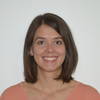
Postdoctoral Researcher
Marie-Skłodowska-Curie Fellow
Interests (non-exclusive list): The physics of aeolian processes on Earth and other planets; dust aerosol modeling on different spatio-temporal scales; field and lab studies; environmental impacts
Bio: I have received my diploma (Master equivalent) and my doctoral degree (Dr. rer. nat.) in Meteorology in respectively 2010 and 2014 at the University of Cologne, Cologne, Germany. I stayed in Cologne as a postdoctoral research associate for one year and then worked in New Mexico, USA, for 2 years as a postdoctoral research fellow funded by the Deutsche Forschungsgemeinschaft (DFG, German Research Foundation). In November 2017, I joined BSC as a Beatriu de Pinós postdoctoral research fellow. Soon after that I was awarded a Marie-Skłodowska-Curie Individual Fellowship, which I started on 1st November 2018. My research interests include aeolian processes on all scales, their frequency, and impacts on Earth and other planets. My major research focus is to understand the physics of dust emission and to advance its parameterization in numerical models. Until now (05/2019), my work has resulted in 19 publications in peer-reviewed international journals (8 as the lead author; 4 reprinted as book chapters), the participation as a presenter at 21 and (co-)convener at 5 international conferences/workshops, the organization of 1 international workshop, and several invited visits/presentations at renowned research institutions around the world. Since 01/2018, I am associated editor of the journal Aeolian Research (Elsevier).
Matthew L. Dawson

Postdoctoral Researcher
MSCA Fellow
Interests: secondary organic aerosols
Bio: Matthew Dawson received a Bachelors of Science in Chemistry from the University of Pittsburgh (USA) in 2009, and a PhD in Chemistry from the University of California, Irvine (USA) in 2014. His graduate work at UCI focused on laboratory studies of new particle formation and the development of a novel mechanism for the formation of particles from methanesulfonic acid, amines and water that accounts for the observed complex dependence on precursor concentrations. Post-doctoral research in the Dept. of Mechanical and Aerospace Engineering at UCI involved exploring the effects of recently identified aromatic oxidation pathways on secondary organic aerosol (SOA) in Southern California using the regional UCI-CIT air quality model, and incorporation of the CAPRAMv2.4-reduced aqueous chemistry mechanism into the particle-resolved aerosol model Part-MC. He is currently working at BSC to incorporate an advanced SOA mechanism (CACM/MPMPO) into the NMMB-MONARCHv1.0 chemical weather prediction system in order to explore the effects of reactions of ammonia with organic aerosol leading the formation of brown carbon.
Vincenzo Obiso

Postdoctoral researcher
AXA Chair on Sand and Dust Storms
ERC Consolidator Grant (FRAGMENT)
Interests: Modeling of aerosol-radiation interaction and optical properties.
Bio: I received a Bachelor Degree in Physics and Astrophysics (2006) and a Master Degree in Physics (2010) from the University of Rome “Sapienza”. My studies focused on theoretical physics and in particular on simulations of gravitational waves from magneto-hydrodynamic instabilities. After the university, I worked for 6 months (2012) at Thales Alenia Space company (Turin), where I developed a performance model for an optical satellite link. I have been working at BSC since 2013, where I received my PhD in Environmental Engineering (from UPC) in March 2018. In my PhD thesis I focused on the implementation of a dynamic aerosol-radiation coupling mechanism in the NMMB-MONARCH atmospheric model. During the PhD I also performed sensitivity analyses of aerosol optical to microphysical properties. Currently I am a postdoctoral researcher at BSC, mainly working on the implementation in the NMMB-MONARCH of a dynamic dust-radiation coupling mechanism based on the dust mineralogy.
Manuel Porquet
Interests: Emissions, Geographic Information Systems, air quality modelling
Bio: Manuel Porquet holds B.S in Geology (Universidad de Zaragoza, 2011). He studied a “Master's in Land and Environmental Planning” (Universidad de Zaragoza, 2012). He spent 6 months working in AEMet, creating a digitised database for the Ebro Valley daily precipitations for the period 1981-2010. After that, he studied a “Master's in Geographical Information Systems (GIS) and Teledetection” (Universidad de Zaragoza, 2014) and, after being another 6 months in the IGME, he finished with honours his Master Thesis “Anysotropy of magnetic susceptibility of the Pyrenean Granites”, having published his results recently. At present, he is a support engineer in the Barcelona Supercomputing Center, and he is involved in updating and improving the emissions database of the HERMES model, the emission core of the Spanish air quality system CALIOPE.
Vanessa Nogueira dos Santos
Interests: Atmospheric chemistry and composition, urban aerosols and its effects on climate and health, and paleoclimatology.
Bio: Vanessa holds an MSc. degree in Atmosphere-Biosphere studies by the University of Helsinki, a Bachelor degree in Environmental Engineering by Tampere University of Applied Sciences (Finland) and a degree of Chemistry technician by the Escola Técnica Federal de Química (Brasil). Her previous work focused on measurements and data analysis of aerosol particles in urban areas (e.g: Helsinki, Paris and Jordan). She is currently a Ph.D. candidate in the atmospheric composition group studying source apportionment of air pollutants in the atmosphere, with focus on aerosol particles.
Arnau Buñuel Muriscot
Interests: Data Curation, numerical simulation, air quality, meteorology
Bio: I obtained my BSc degree in Physics with a specialization in fundamental physics at Universitat de Barcelona (UB) in 2018. After that, i completed a MSc in Applied Mathematics with a specialization in numerical simulation at Universidad de Santiago de Compostela (USC). During this period i did an internship in a technological center at Basque Country working with new parameter estimation methods and techniques. Currently I am working at the AC group of BSC in data curation processes.


